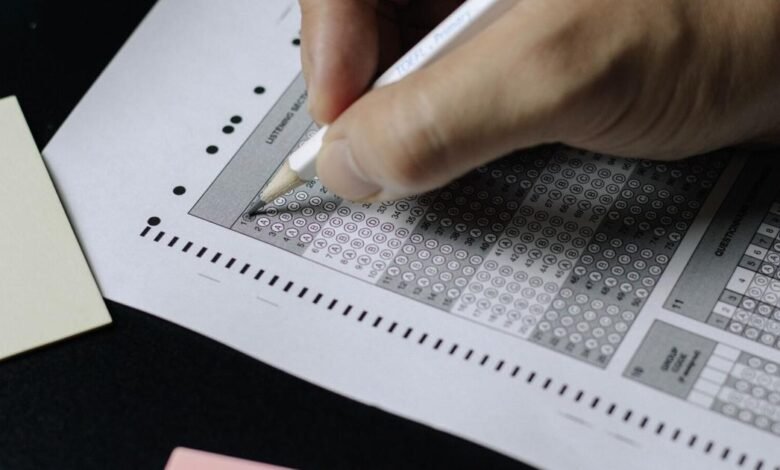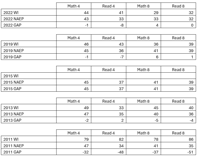Wisconsin making tests easier to pass is a big problem for students | Opinion

Setting passing scores on state assessments might seem like a mundane task, but it plays a crucial role in ensuring student success. Why is this important? The scores students earn on these assessments provide the only objective measure for parents about their child’s academic performance — whether they are performing at, below or above grade level.
In many states, students who score below the passing threshold receive additional support, resources and interventions to help them improve. Unfortunately, the Wisconsin Department of Public Instruction has compromised the integrity of this system by lowering the passing scores on its standardized assessments, effectively altering the expectations for student achievement.
Their decision to move the goalposts could set students back, make it harder for parents to know how their kids are doing and prevent educators from supporting those who need it most.
When states determine passing scores, these scores dictate whether students are considered on grade level or proficient in a subject. By significantly lowering the passing scores, many Wisconsin students may appear more proficient on paper than they actually are. Some districts are expecting to see reported proficiency levels increase by 15% to 25% even though students aren’t actually achieving at a higher level.
There are those who say the lower scores help “level the playing field” because students were appearing worse on paper than necessary. We vehemently disagree. No family or educator wants to hear a student is falling behind, but without accurate data, how will they ever know that a student has, in fact, fallen behind? There’s no way to solve a challenge if you don’t know it exists.
This isn’t just an issue for Wisconsin. Similar decisions have hurt other states like Oklahoma and New York. While each state has its own assessment aligned to its unique standards, all 50 states participate in the National Assessment of Educational Progress (NAEP), commonly referred to as the “Nation’s Report Card,” which allows for comparisons in student performance across states.
We identify what is known as an “honesty gap” by examining any difference between the percentage of students reported as “grade level” by the state assessment and the percentage who achieve proficiency on the national test. Large gaps between state and national results raise serious questions about the honest evaluation of student performance.

National (NAEP) and Wisconsin’s fourth and eighth grade math and reading test scores side-by-side since 2011.
Wisconsin Gov. Tony Evers served as the state’s superintendent of education back in 2012. He enacted rigorous NAEP-aligned cut scores that helped the Department of Public Instruction gain a clear picture of student achievement in core areas.
In 2011, Wisconsin reported that 86% of 8th graders were reading at grade level or higher, while the same year, only 35% of 8th graders were reading proficiently on the national test. This 51-point gap represents tens of thousands of 8th graders who couldn’t read proficiently but were being given passing scores by the state.
After then-superintendent Evers enacted the more stringent NAEP-aligned cut scores, that gap narrowed to fewer than five points in 2013. In 2022, the state reported 32% of 8th graders reading at grade level or higher, and 32% also were reading proficiently on the national test. The state has been honest with parents for the last decade with an improved scale. Gov. Evers continues to support NAEP-aligned cut scores.
This gap is important for students who may leave Wisconsin after graduation to compete with their peers in a national and global marketplace. Understanding whether they are academically prepared is vital for their future success.
All eyes in the state will be on Wisconsin’s 2024 data release this fall to see if there are significant differences between the state’s and NAEP’s Wisconsin results.
In the meantime, it remains disappointing that Wisconsin’s education leaders care more about the scores their students receive than their education. It’s time for leaders to give students and teachers the support they need to make academic progress in the real world, not just on paper.
Patricia Levesque is the CEO of ExcelinEd, an education policy nonprofit. She has more than 25 years of experience in education policy and public service. She lives in Tallahassee, Florida.
Source link



